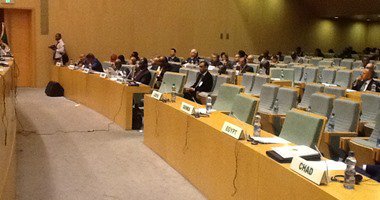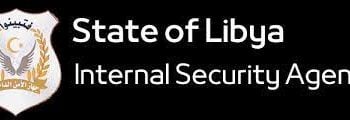By Libya Herald staff.
Tunis, 28 January 2015:
Libyan Foreign Minister Mohamed Al-Dairi as well as Egyptian, Emirati, Saudi Arabian and Guinean delegates . . .[restrict]appear, in a diplomatic compromise, to have engineered Turkey’s and Qatar’s withdrawal from today’s meeting of the Africa Union’s International Contact Group for Libya (ICG-L) in Addis Ababa. The five had initially boycotted the meeting over the presence of Turkey and Qatar, claimed that the two countries had nothing to contribute and that the African Union (AU) should not have invited them without first consulting African states.
It is now reported that Dairi and the others returned to the hall after Turkey and Qatar had withdrawn.
According to a Turkish official, Turkey delivered a statement during the opening session of the meeting.
“The Turkish delegation departed right after the observers and guests left the meeting. The meeting continued with the attendance of ICG members,” the official said. He pointed out that Turkey had attended the meeting not at a political but a technical level. “The main international political dialogue is being carried out under the initiative of UNSMIL and Turkey fully supports this process,” he explained.
The ICG-L was set up by AU’s Peace and Security Council last September. It comprises 16 African, Arab and European countries as well as AU, the EU, the Arab League and the UN. Today’s ministerial meeting in the Ethiopian capital is its second. At the beginning of last month, the first ministerial meeting condemned all the violence in Libya, supported UNSMIL’s efforts at dialogue, said that there could be no military solution to Libyan crisis – and also decided there should be another meeting today.
The Egyptian Foreign Minister Sameh Shoukry had earlier warned that his country would downgrade its participation in it if the Turks and Qataris attended. The two countries have had strained relations with Egypt ever since the Egyptian army removed the Muslim Brotherhood’s Mohamed Morsi as president a year and a half ago. They have also been accused by it and by the House of Representatives and the Libyan government of supporting the Muslim Broitherhood in Libya, the Hassi regime and Libya Dawn.
The rivalry still stands although Qatar and Turkey, which have consistently denied the allegations, are now widely seen as trying to encourage dialogue between the Libyan sides.
The need for such an AU meeting at the same time the prime international focus is on Geneva is, according to AU Commission head Nkosazana Dlamini-Zuma, to review the situation in Libya and “chart the best way forward”. [/restrict]










